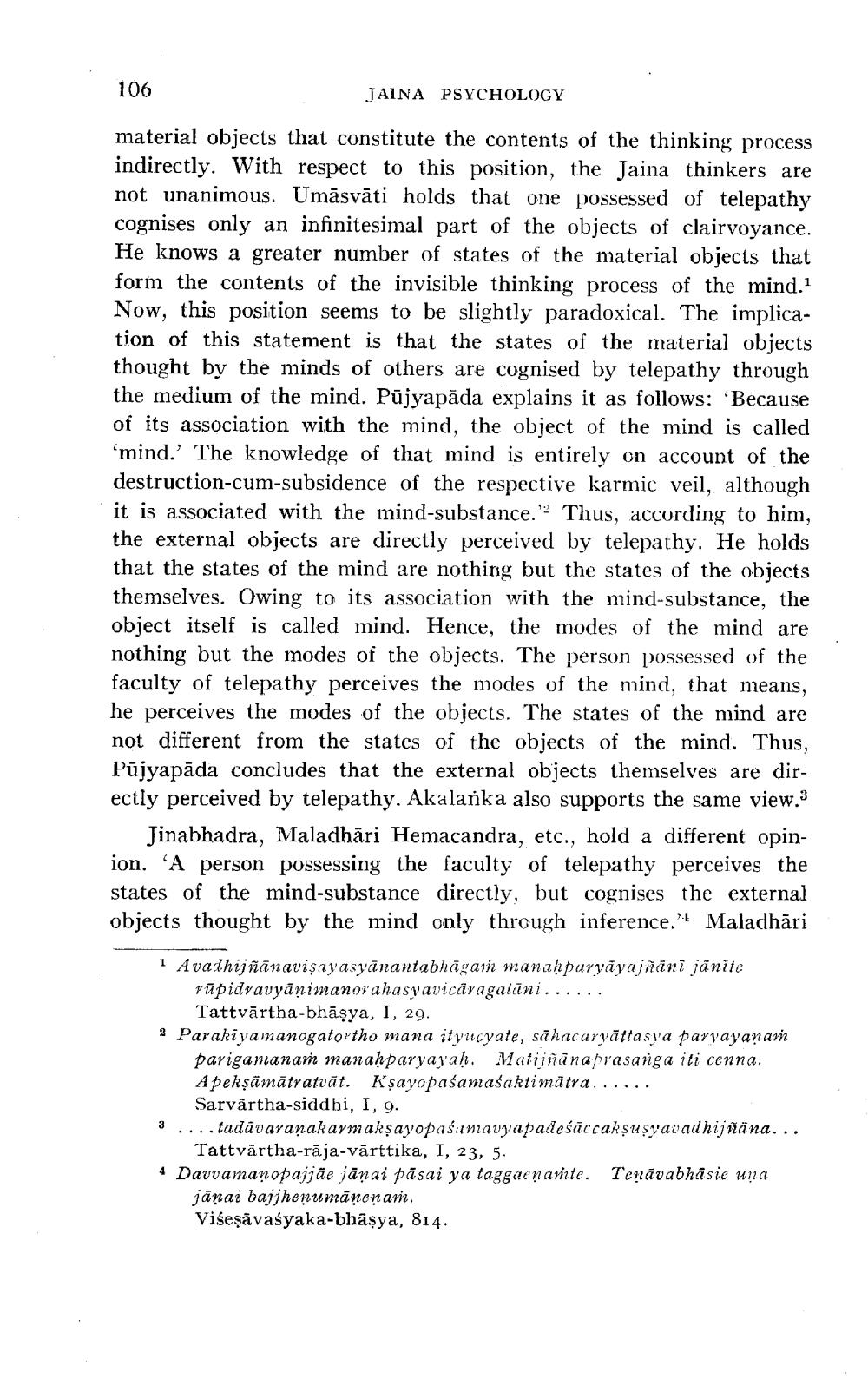________________
106
JAINA PSYCHOLOGY
material objects that constitute the contents of the thinking process indirectly. With respect to this position, the Jaina thinkers are not unanimous. Umāsvāti holds that one possessed of telepathy cognises only an infinitesimal part of the objects of clairvoyance. He knows a greater number of states of the material objects that form the contents of the invisible thinking process of the mind. Now, this position seems to be slightly paradoxical. The implication of this statement is that the states of the material objects thought by the minds of others are cognised by telepathy through the medium of the mind. Pūjyapāda explains it as follows: Because of its association with the mind, the object of the mind is called ‘mind.' The knowledge of that mind is entirely on account of the destruction-cum-subsidence of the respective karmic veil, although it is associated with the mind-substance. Thus, according to him, the external objects are directly perceived by telepathy. He holds that the states of the mind are nothing but the states of the objects themselves. Owing to its association with the mind-substance, the object itself is called mind. Hence, the modes of the mind are nothing but the modes of the objects. The person possessed of the faculty of telepathy perceives the modes of the mind, that means, he perceives the modes of the objects. The states of the mind are not different from the states of the objects of the mind. Thus, Pūjyapāda concludes that the external objects themselves are directly perceived by telepathy. Akalanka also supports the same view.3
Jinabhadra, Maladhāri Hemacandra, etc., hold a different opinion. “A person possessing the faculty of telepathy perceives the states of the mind-substance directly, but cognises the external objects thought by the mind only through inference.'' Maladhāri
1 Avalhijñānavişayasyānantabhāgai manahpuryāyajñāni jānite
rūpidvavyānimanorahasyavicavagalini......
Tattvārtha-bhāşya, I, 29. 2 Parakiyamanogatortho mana ityucyate, sähacaryāttasya paryayanan
parigamanan manah paryayah. Matijānaprasanga ili cenna. Apeksämätratvät. Kșayopaśamasakti mätra...
Sarvārtha-siddhi, I, 9. 3 ....tadāvaraṇakarmakşayopasanavyapadeśāccakşuşyavadhijñāna...
Tattvārtha-rāja-vārttika, I, 23, 5. 4 Davvamanopajjāe jānai pāsai ya taggaenariite. Tenāvabhāsie una
jānai bajjhenumāņonar. Višeşāvaśyaka-bhäşya, 814.




